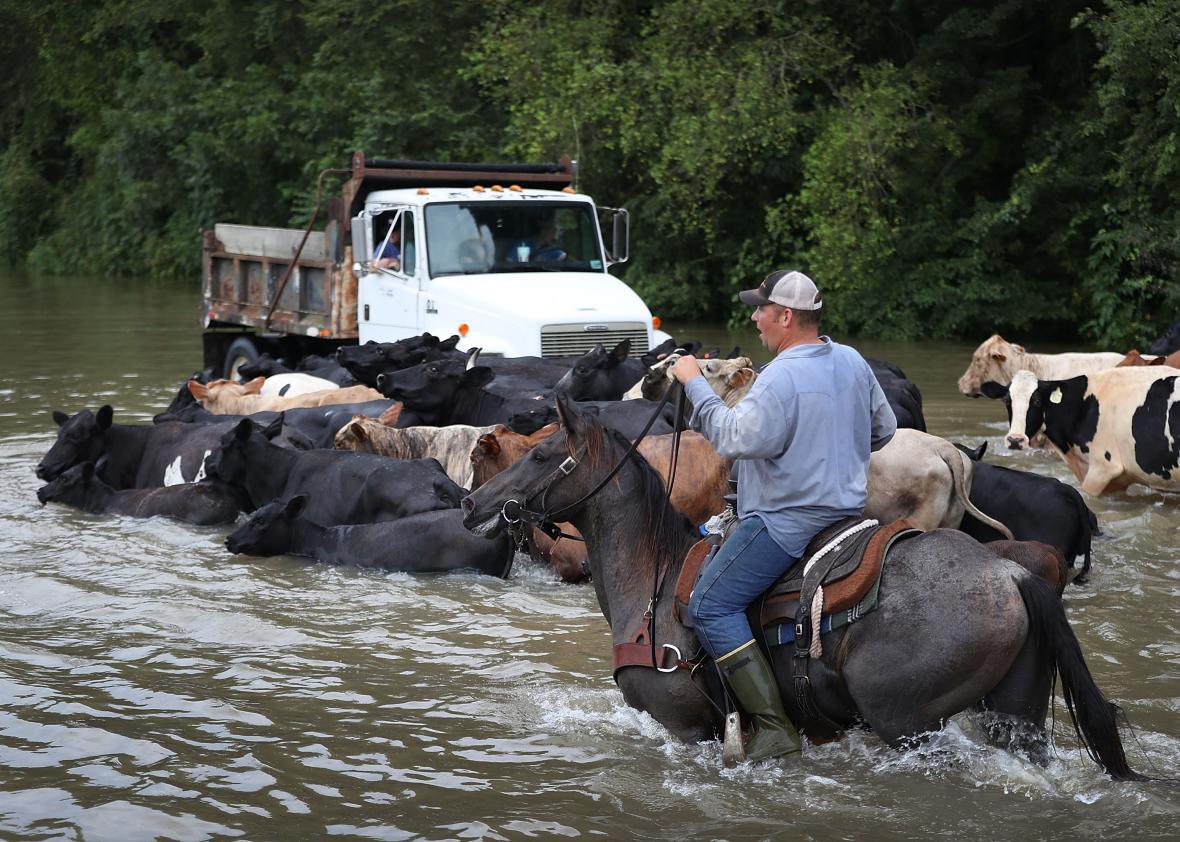As the scale of the historic flooding that has engulfed parts of Louisiana has come to light this week, scientists said that climate change was already resulting in an increase in such disasters.
The rain began on Friday in Louisiana and so far 40,000 homes have been damaged, 20 of 64 parishes have been declared federal disaster sites, more than 30,000 people have been rescued, and 11 people have died. Those numbers are expected to rise. Some areas experienced two feet of rain in 48 hours. The National Oceanic and Atmospheric Administration has classified the flood a once-in-every-500-years event while the vice president of the Red Cross called the flood the worst natural disaster to hit the United States since Superstorm Sandy in 2012.
What does climate change have to do with this? The Louisiana flooding has been the eighth such one-in-every-500-year weather event to strike the United States in just a little more than 12 months. These events are simply becoming more common.
As the Guardian noted:
Since May of last year, dozens of people have been killed and thousands of homes have been swamped with water in extreme events in Oklahoma, Texas, South Carolina, West Virginia and Maryland. Noaa considers these floods extreme because, based on historical rainfall records, they should be expected to occur only once every 500 years.
“There’s definitely an increase in heavy rainfall due to climate change,” John Nielsen-Gammon, the state climatologist in Texas, told the New York Times. “The actual increase from place to place is going to be variable because of the randomness of the weather. Some places will see a dramatic change.”
The problem is exacerbated by the fact that preparations for preventing such flooding were established decades ago, before it was evident that climate change would be causing more severe storms. J. Marshall Shepherd, a professor at the University of Georgia and a former president of the American Meteorological Society, told the Times that the flooding was particularly bad in areas where storm-water systems were designed with the assumption that “it was always going to rain the same way as 40 years ago.”
“We have been on an upward trend in terms of heavy rainfall events over the past two decades, which is likely related to the amount of water vapor going up in the atmosphere,” Kenneth Kunkel, of the Cooperative Institute for Climate and Satellites, told the Guardian. “There’s a very tight loop—as surface temperatures of the oceans warm up, the immediate response is more water vapor in the atmosphere. We’re in a system inherently capable of producing more floods.”
Kevin Trenberth, senior scientist at the National Center for Atmospheric Research, told the Guardian that each 1 degree Celsius increase in temperature could add 7 percent moisture to the air. A warmer atmosphere is comprised of more water, so the hotter it becomes, the more intense rainfalls are expected to be in some areas.
“[The floods have had a] clear human component in them,” Trenberth said. “I have seen only a few reports and none mention climate change at all. It is pathetic.”
On Tuesday, officials criticized the national media for being slow to cover the story and said that the fact that the weather event didn’t have a name might have played an impact.
“When you have a storm that is unnamed—it wasn’t a hurricane, it wasn’t a tropical event—people underestimate the impact that it would have,” Louisiana Gov. John Bel Edwards said. “But this is historic. It’s unprecedented and we are seeing unprecedented flood levels as the water moves south.”
“You have the Olympics. You got the election. If you look at the national news, you’re probably on the third or fourth page,” Craig Fugate, the administrator of the Federal Emergency Management Agency, said. “FEMA understands this is a very large disaster impacting tens of thousands of people. Irregardless of whether it is getting in the national coverage, we know this has had a significant impact in Louisiana.”
